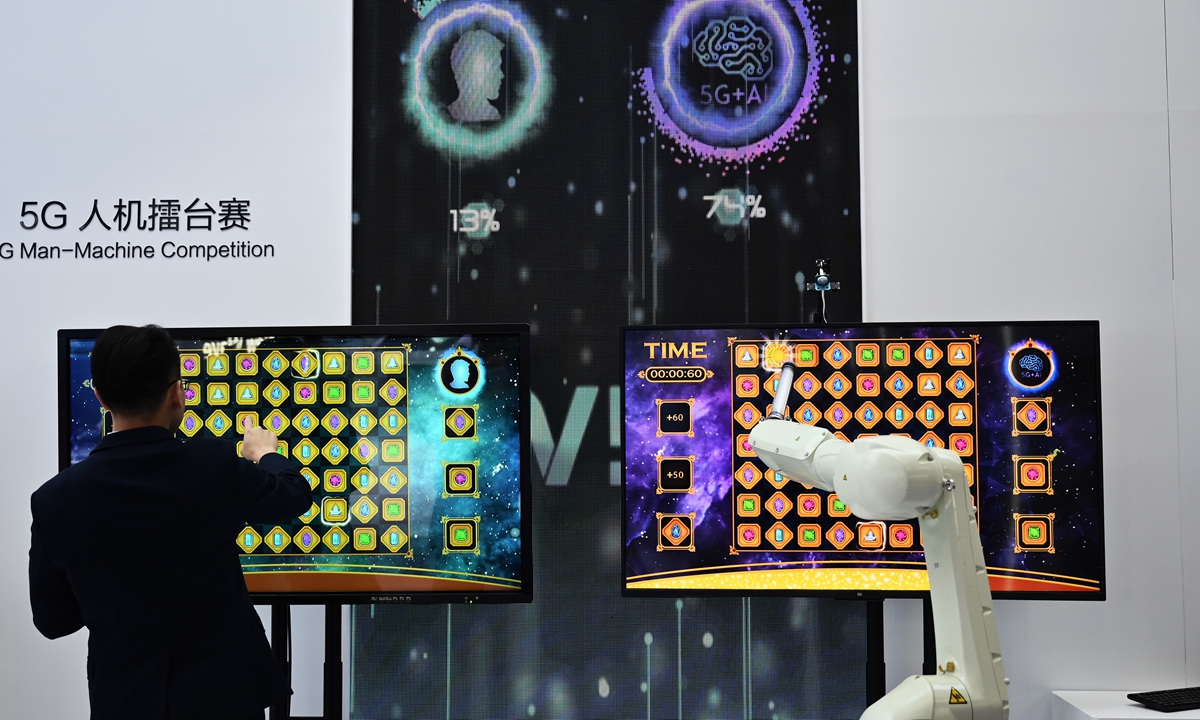
The ICT ecosystem's leading event, PT Expo China, hosted by the Ministry of Industry and Information Technology, opens in Beijing. Here, a man is seen competing with a 5G robot during a game at ZTE's booth. Photo: cnsphoto
Chinese telecom giant ZTE Corp will continue to build up its core competences that are comprised mainly of algorithms and chips, its president said on Monday.
ZTE's gross profitability comes from continuing product innovation and its ultimate pursuit in cost terms, ZTE President Xu Ziyang told an earnings call, speaking of the company's approach to increasing market share and gross margins in domestic network construction.
In addition to the pledge to commit to technologies including algorithms and chips, Xu vowed to watch every penny in areas that can't be quantified at the moment or call for cost-saving efforts.
The Shenzhen-based telecom equipment maker reported 101.45 billion yuan ($15.59 billion) in operating income in 2020, up 11.81 percent from the year before, read its annual financial disclosure on Wednesday. Net profits fell 17.25 percent to 4.26 billion yuan last year, per its disclosure, while net profits excluding extraordinary gains or losses soared 113.66 percent to reach 1.04 billion yuan.
"In terms of chipsets, advanced manufacturing technology, packaging and joint software/hardware design can help overcome the bottleneck of Moore's Law," Xu said in a keynote speech to the Mobile World Congress Shanghai 2021 in late February.
Considering algorithms as the key to higher software quality and efficiency, Xu pledged to "focus on high cohesion at the physical layer, ultimate performance at the network layer, and feature optimization at the service layer, and continue to improve the artificial intelligence algorithm library."
This will result in continuous improvement in chipsets and algorithms, as well as revolutionary progress in architecture, according to the telecom industry veteran, who said the company welcomes deep and open cooperation with its ecosystem partners.
Global Times


